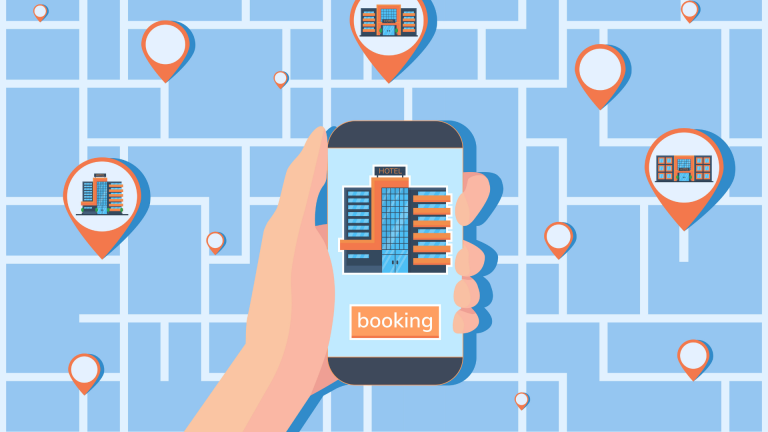The hospitality industry is one of the most customer-centric sectors in the world. With rising expectations for speed, personalization, and convenience, businesses are turning to AI-driven booking assistants to enhance guest experiences.
From intelligent chatbots that handle reservations 24/7 to voice-powered virtual concierges, AI-driven systems are redefining how travelers search, book, and interact with hotels and travel platforms. In 2025, these assistants are no longer optional — they are essential for competitive advantage in hospitality.

What Are AI-Driven Booking Assistants?
AI-driven booking assistants are smart systems that leverage natural language processing (NLP), machine learning, and predictive analytics to manage hotel reservations, travel bookings, and customer queries.
They can:
- Process voice and text-based requests.
- Offer personalized room recommendations.
- Manage pricing and availability in real-time.
- Handle payments and cancellations securely.
Essentially, they act as a virtual travel agent and hotel receptionist combined, delivering faster and more seamless services.
Why AI-Driven Booking Assistants Matter in Hospitality
Hospitality thrives on personalized guest experiences, but traditional booking systems often lack flexibility. AI assistants solve this by providing:
- 24/7 availability without human staffing costs.
- Context-aware responses by analyzing customer history.
- Dynamic pricing and upselling opportunities.
- Seamless multilingual support for global travelers.
This not only improves guest satisfaction but also helps hotels optimize operations and revenue.
Key Ways AI-Driven Booking Assistants Are Transforming Hospitality
1. 24/7 Automated Reservation Management
Travelers no longer need to wait for office hours. AI chatbots and booking assistants manage:
- Real-time availability checks.
- Instant room confirmations.
- Waitlist and cancellation processing.
Example: Marriott uses AI-driven assistants to streamline room bookings and confirmations across its digital platforms.
2. Personalized Guest Experiences
AI analyzes past bookings, preferences, and behavior to make tailored suggestions:
- Room type preferences (sea view, deluxe, suite).
- Preferred amenities (spa, breakfast, gym access).
- Travel recommendations based on history.
Impact: A returning guest is offered personalized package deals, increasing loyalty and repeat bookings.
3. Multilingual & Cross-Cultural Support
With global tourism on the rise, AI assistants provide multilingual support that ensures smooth communication with international guests.
- Real-time translation of guest queries.
- Multilingual voice-based booking.
- Localization of services (currency, cultural preferences).
Result: Hotels become more inclusive and accessible to international travelers.
4. Dynamic Pricing & Smart Upselling
AI booking systems optimize revenue by:
- Adjusting room rates in real time based on demand, season, and competitor pricing.
- Suggesting upgrades or add-ons like spa treatments, guided tours, or premium rooms.
Example: Hilton leverages AI to recommend room upgrades and experiences during the booking process, increasing revenue per booking.
5. Seamless Voice-Powered Booking
Voice-enabled AI assistants are becoming popular with smart devices and hotel apps. Travelers can simply say:
- “Book me a deluxe suite in Dubai for next weekend.”
- “Cancel my reservation for Paris and rebook in Rome.”
Impact: Faster, hands-free booking that matches modern user habits.
6. Fraud Detection & Secure Payments
AI-driven assistants analyze transaction data to detect suspicious activities. They also support:
- Secure digital payments.
- Automated billing.
- Smart refund and cancellation policies.
This builds trust and confidence among guests.
7. Data-Driven Insights for Hotels
AI booking assistants not only serve customers but also generate valuable insights for hotels:
- Most requested room types.
- Popular booking times and destinations.
- Common guest complaints and questions.
These insights help hoteliers optimize pricing, staffing, and marketing strategies.
Benefits of AI-Driven Booking Assistants
- ✅ Higher Efficiency – reduces manual staff workload.
- ✅ Better Guest Experience – personalization at scale.
- ✅ Increased Revenue – through upselling and optimized pricing.
- ✅ Global Accessibility – multilingual and cross-border bookings.
- ✅ Operational Insights – improved business intelligence.
Challenges in Adopting AI Booking Assistants
While powerful, adoption comes with challenges:
- Integration Costs – requires merging with existing booking systems.
- Privacy Concerns – sensitive guest data must be secured.
- Dependence on Technology – service disruptions if AI fails.
- Balancing Human Touch – hospitality still values personal interactions.
Future of AI in Hospitality Booking
By 2030, AI booking assistants will become fully agentic, capable of managing entire guest journeys — from flight bookings to hotel check-ins. Future trends include:
- Hyper-personalization – predicting guest needs before they ask.
- AR/VR-assisted booking – allowing guests to preview rooms virtually before booking.
- Integration with Smart Rooms – linking booking data with IoT-powered hotel rooms.
- Blockchain-backed secure bookings – for fraud-proof transactions.

